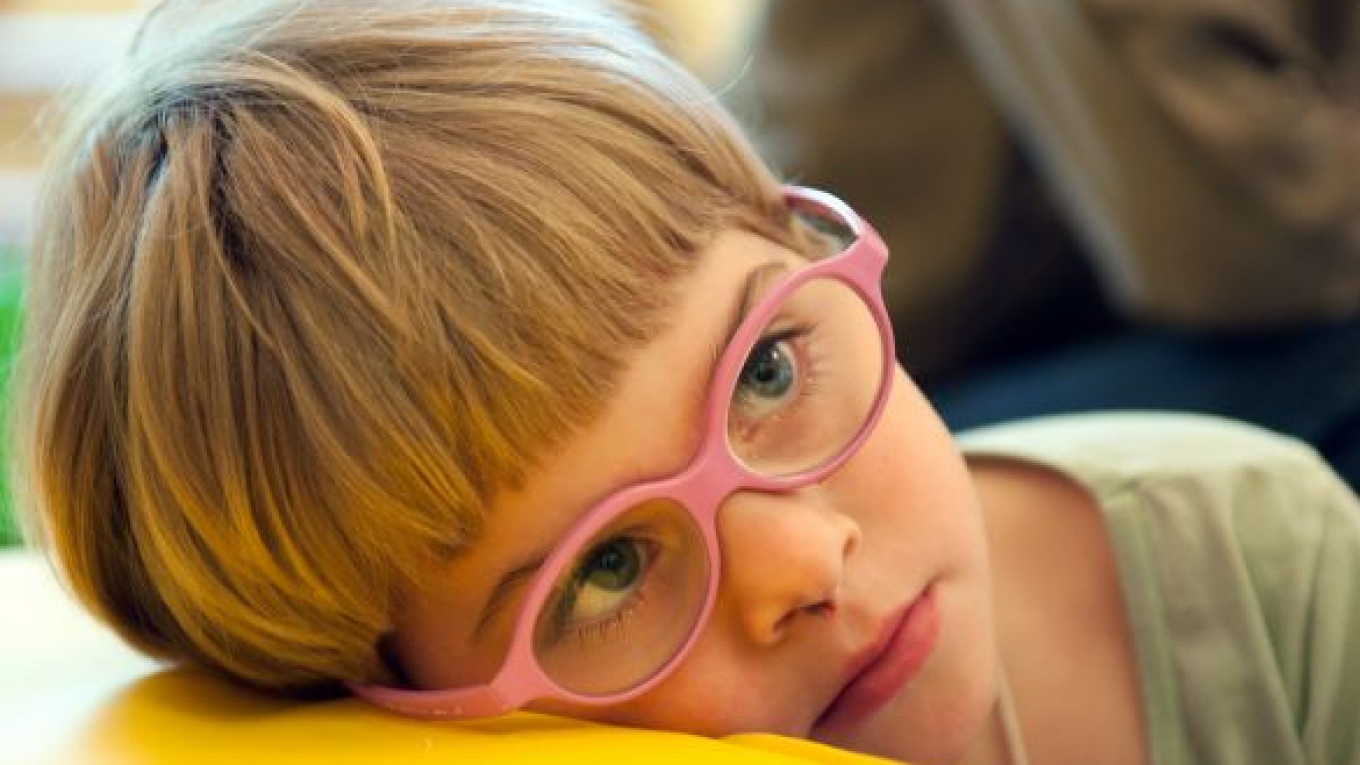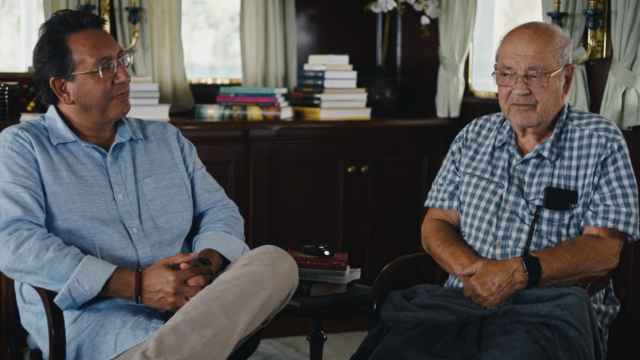Award-winning photojournalist Andreea Anca has documented the plights of people all over Europe, from anti-Milosevic demonstrators in Serbia to Roma women in the Czech Republic, but it was a Moscow clinic that most recently challenged her.
Anca, born in Romania and now based in Hungary, spent several days interacting with the special needs children at Moscow's Center for Curative Pedagogics, where each year about 900 children and their families receive care. Her photographs, which were put on display at a charity auction last month, captured the joy and the pain that she saw.
"I felt like an intruder," Anca said about her first days at the center. "For the first time in my life, I felt nervous in the company of children because I didn't know how to interact with them."
The diagnoses of CCP patients include autistic spectrum disorder, epilepsy, and severe mental disabilities and genetic syndromes, such as Down syndrome. Official statistics indicate that 340,000 such children in Russia lack access to education, proper therapeutic care and integration into society. Founded by parents and specialists in 1989, the center is one of the first organizations in the country to work with such children.
During her time at the center, Anca became fascinated with understanding the children she observed. "They sometimes lack basic abilities like seeing or hearing — abilities that we think make us strong — yet they are very strong individuals," she said. "Often a 'normal' person may have all his abilities, but in reality be very weak."
Anca's photographs offer an intimate glimpse at the children's personalities by focusing closely on their faces, which appear surprised, intensely contemplative, and — more often than not — happy.
"Take the picture of Nadya, a little girl who doesn't walk, doesn't see, almost doesn't speak," CCP executive director Nikolai Morzhin said, looking through the photographs. "It's very hard to present a positive image of her diagnosis. And yet these photographs radiate positivity."
CCP is currently struggling through a shortage of funds and physical space, Morzhin said. The center is on the verge of outgrowing its only location, a two-story former kindergarten building near Prospekt Vernadskogo, and faces the possibility of cutting down its programs due to a combination of inadequate government aid and former Western support funds, such as The Ford Foundation, pulling out of Russia.
"About 80 percent of our funding comes from expats," said Preslava Fentham-Fletcher, director of Action for Russia's Children, a nongovernmental organization sponsoring nine charities in the country, including CCP. "Russians are increasingly donating, but only those who have business ties with foreigners — in effect, they are donating by example."
On June 23, more than 100 marketing professionals gathered at design center Flakon to raise money for CCP. Michael Green, managing partner at marketing services agency Action Russia, which organized the event, said they raised more than 1.5 million rubles ($54,000) by the end of the night.
"This charity is impressive because it has a tangible cause," Green said. "In a large-scale charity … you don't quite know how the money is being spent. But CCP is very transparent and very local."
Anca said she plans to continue helping children with disabilities, either in Hungary or Russia.
"I only know one way of looking at the world, but they see it completely differently," she said.
A Message from The Moscow Times:
Dear readers,
We are facing unprecedented challenges. Russia's Prosecutor General's Office has designated The Moscow Times as an "undesirable" organization, criminalizing our work and putting our staff at risk of prosecution. This follows our earlier unjust labeling as a "foreign agent."
These actions are direct attempts to silence independent journalism in Russia. The authorities claim our work "discredits the decisions of the Russian leadership." We see things differently: we strive to provide accurate, unbiased reporting on Russia.
We, the journalists of The Moscow Times, refuse to be silenced. But to continue our work, we need your help.
Your support, no matter how small, makes a world of difference. If you can, please support us monthly starting from just $2. It's quick to set up, and every contribution makes a significant impact.
By supporting The Moscow Times, you're defending open, independent journalism in the face of repression. Thank you for standing with us.
Remind me later.






